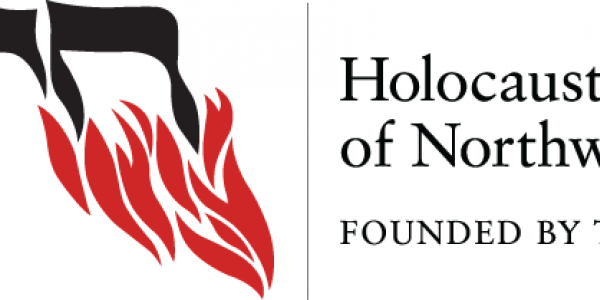The Holocaust in the 21st Century: Relevance and Challenges in the Digital Age
04/08/2022 | Na stronie od 04/08/2022

Source: HOLOCAUST EDUCATIONAL FOUNDATION OF NORTHWESTERN UNIVERSITY, PDF

HOLOCAUST EDUCATIONAL FOUNDATION OF NORTHWESTERN UNIVERSITY
The mission of the Holocaust Educational Foundation of Northwestern University (HEFNU) is to advance Holocaust education at institutions of higher learning around the world. To achieve this mission, HEFNU aims to develop professors qualified to teach Holocaust courses, grow the number of colleges and universities that offer Holocaust courses, and thereby increase the number of students who study the Holocaust.
The Holocaust Educational Foundation of Northwestern University (HEFNU) values scholarly excellence and open discourse in the multi- and inter-disciplinary field of Holocaust Studies, including: critical inquiry, academic integrity, intellectual honesty, and a commitment to learning and respectful debate.
The success of HEFNU programs relies on cooperation and collaboration with institutions and individuals around the world. HEFNU considers excellence and integrity in choosing institutions and individuals with which to cooperate. HEFNU values academic and intellectual freedom with regard to teaching and research. HEFNU encourages diverse views and supports the right of those associated in any way with HEFNU (Staff, Academic Council, Advisory Board, Conference participant, Institute Fellow, Grant recipient, etc.) to articulate beliefs and positions without fear of retribution or censure. Beliefs and positions expressed by those associated with HEFNU are their own and do not reflect the beliefs and positions of HEFNU, which is a non-partisan organization. Furthermore, HEFNU presumes that those associated with HEFNU, particularly when working on HEFNU business, will interact with each other and those outside the HEFNU community, with honesty, integrity, and respect.
HEFNU values diversity in the field of Holocaust Studies and is committed to eliminating barriers based on sex, sexual orientation, gender identity, religion, race, ethnicity, ability, and employment status.
HEFNU promotes the right of all who participate in our programs to do so in safety. HEFNU prohibits misconduct and harassment and follows the Misconduct and Harassment Policies of Northwestern University. We expect all who participate in our programs to be familiar with these policies and to conform to their standards.
The Holocaust in the 21st Century: Relevance and Challenges in the Digital Age
Among others:
Ádám Gellért, University of Bristol, “Partners in Crime in the Hungarian Holocaust: The Interplay between the Eichmann Kommando and the Hungarian Ministry of Interior”; Peter Hayes, Northwestern University, Mentor
Jan Lanicek, University of New South Wales, “Ordinary Gendarmes? Collaboration of the Czech Police in the Holocaust”
Anna Cichopek-Gajraj, Arizona State University, “‘Take Guns and Go for the Jews!’ Anti-Jewish Violence in Kraków and Topolcany in August and September 1945”
Hana Kubatova, Charles University, “Slovaks, Jews, and Banderites: The 1945 Pogrom in Kolbasov”
Stefan Cristian Ionescu, United States Holocaust Memorial Museum, “Restitution of Jewish Properties in the Aftermath of the Antonescu Regime (1944–50)”
Lessons and Legacies XIV: The Holocaust in the Twenty-First Century; Relevance and Challenges in the Digital Age
Tim Cole
Simone Gigliotti
Series: Lessons & Legacies
Copyright Date: 2021
Published by: Northwestern University Press